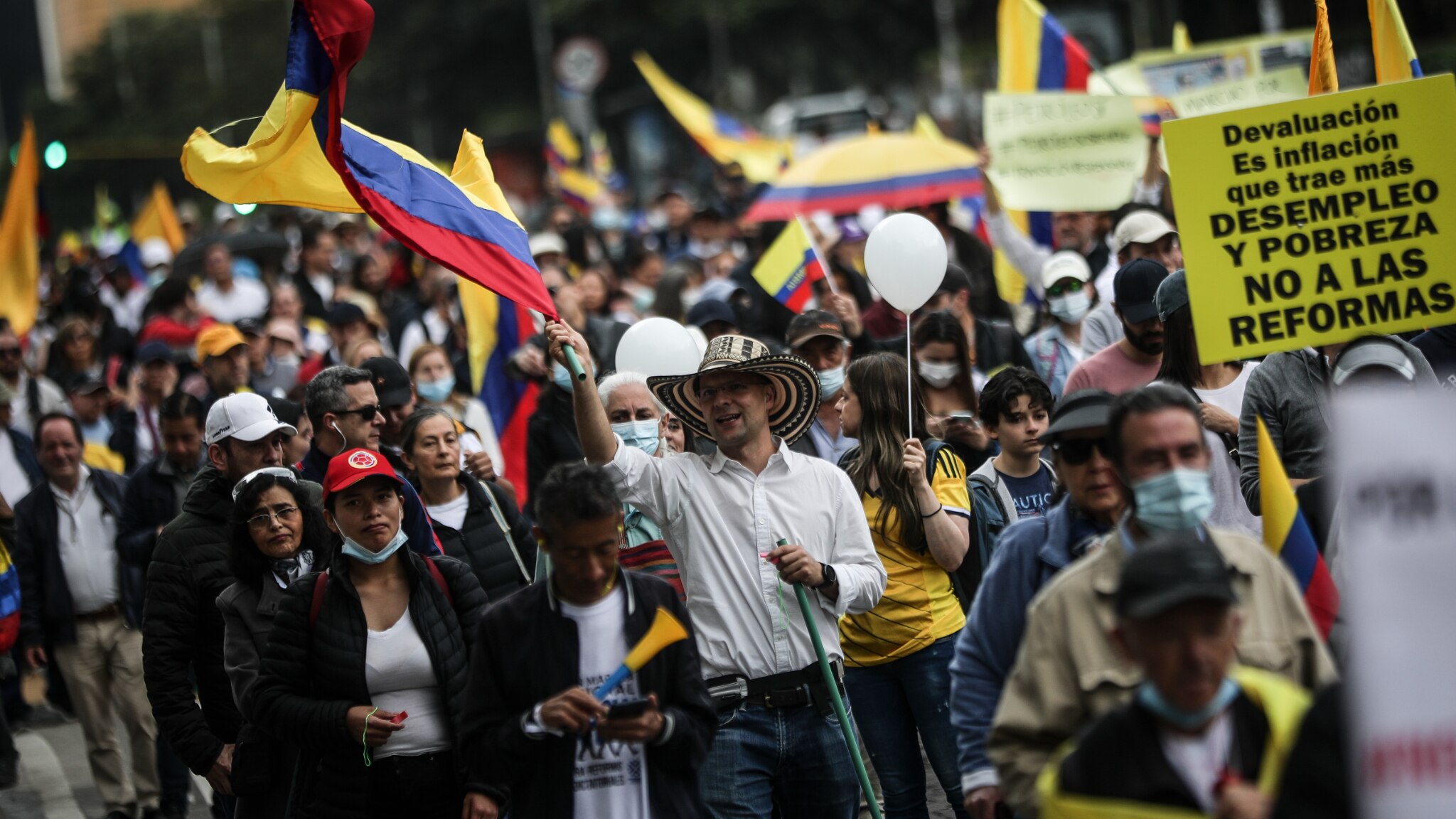Thousands of protesters took to the streets in the main cities of Colombia to protest against the tax reform project of the government of Gustavo Petro, in a period of strong devaluation of the local currency against the dollar
.
Dressed in white and waving tricolor flags, the Colombians mobilized for the second time with the cry of "enough Petro", who was sworn in on 7 August as the first left-wing president in the history of the country.
"Today we ask the government to take into account the country's manufacturing sector, to understand that tax reform is not necessary in the way they are doing it," said businessman Alvaro Aparicio (58) who participated in the protest in Bogotà. despite heavy rain.
Slogans and marches were also organized in other important cities such as Calì, Barranquilla and Medellìn.
The tax reform project presented by the government aims to tax the wealthier classes more to finance social programs against poverty and inequality with new resources.
Meanwhile, the country is suffering the effects of global inflation and the historic devaluation of the local currency against the dollar.
Unemployment reached 10.6% of the workforce.
In the last elections last August, Petro conquered just over half of the Colombian electorate with an ambitious calendar of reforms that included, among others, the limitation of oil exploration and the distribution of fertile land to farmers left "without land".
It is not the first time that, in recent years, Colombians have decided to raise their voices against government decisions.
Former president Ivan Duque, head of a right-wing coalition and Petro's predecessor at the helm of the country, also had to face mass demonstrations in the streets in 2019, 2020 and 2021.
The bloodiest protests occurred last year, when the then president tried to tax the middle class to cope with the crisis dictated by the Covid pandemic, unleashing violence for two months which, according to the United Nations, caused 46 civilian deaths and policemen.

